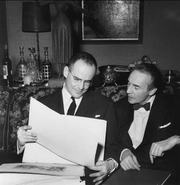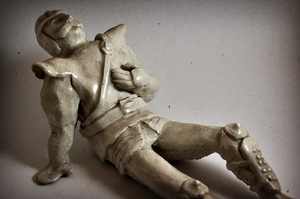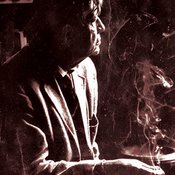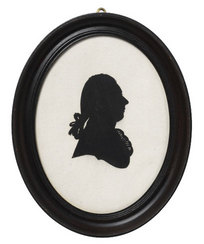day by day: a blog
November 26, 2008
drive to the airport
 [image: © 2008 Nicholas Jenkins]
[image: © 2008 Nicholas Jenkins]
Crazy curving beauty of interwoven skid-marks on tarmac, like scroll-work on Anglo-Saxon carved cross unearthed from ruin; slight, crazy mystery of pylons looming out of smog-haze, like monsters' swaying heads appearing through mist on Mercian moor; crazy-house, rippling reflections of Volvo in milk-tanker, like glints of attacker's face shining for terrified moment on enemy's shield.
Grim, teeth-clenched, crazy sadness of sundered bond between liege-lord and vassal, like distance over the whale-road between silent, angry father and silent, bewildered, angry, middle-aged son.
Posted by njenkins at 02:55 AM | Comments (0)
November 24, 2008
lonelinesses
 [image: © 2008 Nicholas Jenkins]
[image: © 2008 Nicholas Jenkins]
I sometimes feel that I live for surprises, for the unforeseen, for the sight which cracks the ice on my soul. It happened again this morning. I was shambling into Walgreens, ruminating uneasily on the frustrated comment (made by someone very close to me) that perhaps I suffered from ADD. My body followed, in an almost automatic way, the familiar path towards the pharmacy. I made a left turn at shoe supplies corner, intending to head up toy alley. And there it was. Or there she was.
The aisle was empty. Or was it? A large, soft doll -- female, youthful, caucasian model, brown hair, pink shirt, pink shoes with green soles -- lay prostrate (OED: "Of a person: lying with the face to the ground, in token of submission or humility, as in adoration, worship, or supplication; (hence more generally) lying stretched out on the ground, typically with the face downwards... Laid low in mind or spirit; submissive or abject; defeated or powerless... In a state of physical exhaustion or complete weakness; unable to rise or exert oneself; debilitated") on the linoleum like someone robbed and left for dead.
In her wounded pathos, she seemed for a moment uncannily, traumatically human. Or was it that for a moment I was magically transported out of my own inert human-ness to a doll-like simplicity? The thought crossed my mind that I ought to kneel down next to her and weep. For her? Or for myself? (Then I ran the movie a bit further and when I did I saw myself being led meekly away while the doll was replaced on her shelf.)
But perhaps it was not so much a matter of enigmatic subjectivity or of exchanged worlds as of sheer relief in me for the frisson of the unexpected moment? Kleist wrote that grace "appears to best advantage in that human bodily structure that has no consciousness at all -- or has infinite consciousness -- that is, in the mechanical puppet, or in the God." The transportation, the grace, the bliss, the sadness (so fractional and limited in time but still so strong), happened in a semi-deserted Walgreens in a Silicon Valley suburb. It means they could happen again anywhere. I just hope to God that they will.
Posted by njenkins at 01:18 AM | Comments (0)
November 23, 2008
falling
 [Kirstein (left) and Balanchine in the sitting room at Kirstein's house on East 19th Street, New York; photo: Tanaquil Le Clercq, New York City Ballet Archives, Tanaquil Le Clercq Collection]
[Kirstein (left) and Balanchine in the sitting room at Kirstein's house on East 19th Street, New York; photo: Tanaquil Le Clercq, New York City Ballet Archives, Tanaquil Le Clercq Collection]
When, perhaps 15 years ago, we sat chatting in his kitchen, just behind the sitting room in his beautiful old house, I would sometimes tell Lincoln Kirstein about things I had screwed up or done badly. Lincoln had a very complex understanding of the meaning and possibilities of disorder. And when I said things of this kind, he used to tell me, with his usual, unruffled, subtle smile, that Balanchine had never minded when a dancer fell over during a performance -- "it showed they were trying".
How can I apply that lesson to my life today? I know I need to.
Posted by njenkins at 06:32 PM | Comments (0)
November 21, 2008
poet and gun
In spite of the fact that the main thing I do is read y'know, like, poems, people in academia sometimes describe my work on Auden as "biographical" (which is a not very subtle scholastic codeword for "empirical", "positivistic" or "idea-free"). Whenever such interlocutors -- who usually have some heavy but unacknowledged "biographical" investments of their own -- make this sort of remark, I always try to smile politely and ignore the snub. After all, nothing worth anything is or should be immune from challenge. Whatever needs saying will meet resistance.
But this notion about my critical project does disappoint me because it constitutes a misunderstanding, even a mischaracterization, of my aims. To me, as to almost everyone else, the life of a poet is not the baseline to which that poet's oeuvre is tied. A love-affair, a meeting or a death does not explain a poem or circumscribe its meaning. Still, if you treat the events of a life -- journeys, remarks in letters, the places where things happened -- as having both a literal and a figurative status, as if, in additional to being historical data, they wove their own text as a kind of elliptical commentary on the poems which arose out in their vicinity, then sometimes biographical information contains clues, hints, suggestions which can lay bare energies and meanings which would otherwise lie occluded in a poem's deep subsoil.
You have to watch for these hints, like a dowser searching for water. Not everything is meaningful. Or, better, no-one (least of all me) can understand how to make use of everything that lies to hand. In any given pair of eyes, some anecdotes shimmer with a suggestive luster which others do not have.
Perhaps, for that glow to exist, it is essential that the incident seem to hint at something which runs counter to a received truth.
Today, for example, I find my mind running on Auden's imaginative interest in violence. It may be that the thought came into my mind because of a letter I received from Michael Auden, Auden's second cousin once removed (that is to say, Michael is the son of Auden's first cousin, Lt.-Col. Humphrey Auden). "I only met Wystan once, after the War", Mr. Auden comments, speaking about an encounter which took place at the family home, Danesgate, in Repton, Derbyshire. It may well have been during the trip which Auden made to Europe in the spring of 1948. He continues: "I was shooting young Rooks for the pot in the rookery trees at Danesgate, and Wystan asked if he could have a shot. The rifle had a hair-trigger, and he nearly put a bullet into his foot!"
What to do? Laugh at the punchline joke about a namby-pamby poet almost shooting himself in the foot? Or instead wonder whether any other eminent poet of the mid-century (a Pulitzer prize-winner in the very year when this incident probably occurred!) would have been curious to handle a gun? I prefer the latter option. It goes against everything we fondly imagine about the mildness and bookishness of poets. It goes against everything that Auden is supposed to stand for. It is the kind of clue -- tiny and ephemeral and disgard-able and provocative -- which could send one back to Auden's poems, re-sensitized, musing.
At the time when this incident happened, Auden was just beginning work on his "Horae Canonicae" cycle about the meaning of Chist's crucifixion. It was to be, if you look at it from a certain angle, a kind of murder story....
Posted by njenkins at 04:03 PM | Comments (0)
November 20, 2008
gaming: a biography
 [image: "Fallen Knight", Michael O'Dowd, 1990]
[image: "Fallen Knight", Michael O'Dowd, 1990]
"Alea jacta est" -- Julius Caesar, 10 Jan. 49 BC
Nov. 1917 -- a great-uncle is mown down at Paschendaele: the familial and class-based sense of sadness, resentment and unfairness is born: alea jacta est.... 1944 -- a mystery: an aunt's lover, a member of a secret commando group, is killed by members of his own squadron during a dive: alea jacta est.... 1945-1960 -- period of decline and contraction in post-Imperial Britain: alea jacta est.... 1964 -- early years; his dog (companion to the infant) is taken away: alea jacta est.... 1967 -- he is dumped with his dreams in front of the television: alea jacta est.... 1968 -- his first name is a nightmare: alea jacta est.... 1969 -- he lies awake at night hearing his parents argue: alea jacta est.... 1970 -- he weeps over the failure of the national soccer team: alea jacta est.... 1971 -- fellow pupils ostracize because of his fat legs: alea jacta est.... 1973 -- at cub camp, no-one wants him in their tent: alea jacta est.... the mid-1970s -- every night on the television the incomprehensible and banal: bombs, shootings, kneecappings, stone-throwing Irish teenagers: alea jacta est.... 1975 -- his father's father's treasured possessions are a volume of Churchill's speeches, Henry V, and the hero of Paschendaele's medal and portrait: alea jacta est.... 1976 -- he learns rage, humiliation and shame at his father's table: alea jacta est.... 1978 -- he fails to be chosen for the advanced stream in his secondary school: alea jacta est.... late 1970s-early 1980s -- his father's businesses implode: alea jacta est.... 1981 -- he reads of Caesar declaring "alea jacta est" after crossing the Rubicon, and he smiles bitterly: alea jacta est.... 1981-1984 -- one by one his girlfriends leave him; one says in exasperation, "You are too... intense": alea jacta est.... 1984 -- the miner's strike, Mrs Thatcher's war on "the enemy within": alea jacta est.... 1986 -- Oxford over, the young man sets out, as in a Bildungsroman, to conquer the capital: alea jacta est.
Posted by njenkins at 12:36 AM | Comments (0)
November 19, 2008
profile
Demographic profile: middle-aged, Caucasian male, married, employed in higher education field
Place of birth: Reading, Berkshire
First school: Huntley Square Elementary School
Physical deformities: none discernible
Ambition as child: to be on TV
Name of first girlfriend: Christina
Favourite colour: blue
Favourite food: Mediterranean
Favourite piece of music: "Vissi d'arte" (Tosca, Act II)
Favourite band (historic): Elvis Costello and the Attractions
Favourite website: Youtube
Favourite sportsperson/s: Bjorn Borg, Fernando Alonso of RenaultF1
Hobbies: none
Last thing mislaid: a cheque
Recurrent motifs in dreams: being lost, sky falling on head, tumbling from high building
Economic resources: in local context, very limited
Best book read: no entire books as such, but certain passages from many volumes stand out
Allergies: nuts
Likes: mornings, the sea, eyes, humour (but not jokes), driving at night in America
Dislikes: rivals, repetitive sounds, perceptions of disorder
Earliest memory: first dog, a beagle, being "taken away to live on a farm"
Happiest memory: prefer not to say
Saddest memory: deaths of grandparents
Greatest dangers: secrecy; dirigiste temptations
Favourite possession: iPod
Congenital disease: ecsema
Most admired person in history: Martin Luther King, Jr.
Ambition as adult: to write well, to be a good husband and father
Instruments played: none
Dominant faculty: visual
Last country visited: England
Word that first occurs if you think of that visit: Nelson
Describe the world in one sentence: It is a terrible, tragic place, full of inspiration.
Posted by njenkins at 12:38 AM | Comments (0)
November 13, 2008
tesserae
 [Coleridge, Life Mask, from Joanna Kane, The Somnambulists: Photographic Portraits From Before Photography]
[Coleridge, Life Mask, from Joanna Kane, The Somnambulists: Photographic Portraits From Before Photography]
Do the pieces cohere? This is Keats's description (in a letter written on 15 April 1819 to George and Georgianna Keats) of meeting Coleridge:
"Last Sunday I took a Walk towards Highgate and in the lane that winds by the side of Lord Mansfield's park I met Mr [Joseph] Green our Demonstrator at Guy's [Hospital] in conversation with Coleridge -- I joined them, after enquiring by a look whether it would be agreeable -- I walked with him a[t] his alderman-after dinner pace for near two miles I suppose. In those two Miles be broached a thousand things -- let me see if I can give you a list -- Nightingales, Poetry -- on Poetical sensation -- Metaphysics -- Different genera and species of Dreams -- Nightmare -- a dream accompanied by a sense of touch -- single and double touch -- A dream related -- First and second consciousness -- the difference explained between will and Volition -- so many metaphysicians from a want of smoking the second consciousness -- Monsters -- the Kraken -- Mermaids -- [S]outhey believes in them -- [S]outheys belief too much diluted -- A Ghost story -- Good morning -- I heard his voice as he came towards me -- I heard it as he moved away -- I had heard it all the interval -- if it may be called so. He was civil enough to ask me to call on him at Highgate Good Night! ..."
And this is Coleridge himself on apparent divagatoriness or triviality, writing in one distended paragraph in The Friend: A Literary, Moral, and Political Weekly Paper, originally issued between 1809 and 1810:
"What is that which first strikes us, and strikes us at once, in a man of education, and which, among educated men, so instantly distinguishes the man of superior mind, that (as was observed with eminent propriety of the late Edmund Burke) 'we cannot stand under the same archway during a shower of rain, without finding him out'? Not the weight or novelty of his remarks; not any unusual interest of facts communicated by him; for we may suppose both the one and the other precluded by the shortness of our intercourse, and the triviality of the subjects. The difference will be impressed and felt, though the conversation should be confined to the state of the weather or the pavement. Still less will it arise from any peculiarity in his words and phrases. For if he be, as we now assume, a well-educated man as well as a man of superior powers, he will not fail to follow the golden rule of Julius Caesar, insolens verbum, tanquam scopulum, evitare. Unless where new things necessitate new terms, he will avoid an unusal word as a rock. It must have been among the earliest lessons of his youth, that the breach of this precept, at all times hazardous, becomes ridiculous in the topics of ordinary conversation. There remains but one other point of distinction possible; and this must be, and in fact is, the true cause of the impression made on us. It is the unpremeditated and evidently habitual arrangement of his words, grounded on the habit of foreseeing, in each integral part, or (more plainly) in every sentence, the whole that he then intends to communicate. However irregular and desultory his talk, there is method in the fragments."
What blogger dare hope as much?
Posted by njenkins at 04:49 PM | Comments (0)
November 03, 2008
november 2, 2008: unwritten haikai
 [image: W.-A. Bouguereau, The Day of the Dead (1859)]
[image: W.-A. Bouguereau, The Day of the Dead (1859)]
Of All Souls' Day, it says: "The Roman Catholic celebration is based on the doctrine that the souls of the faithful which at death have not been cleansed from venial sins, or have not fully atoned for mortal sins, cannot attain the beatific vision in heaven yet, and that they may be helped to do so by prayer and by the sacrifice of the Mass (see Purgatory)."
* * *
An epistemological panic over trivia. Is it, or is it not, All Souls' Day, the celebration for the faithful departed, on the evening of which in 1944 Auden set The Age of Anxiety? (Except that 2 November 1944 was a Thursday, not a Sunday as it is this year.) Yesterday, 1 November 2008, was All Saints' Day. Normally, All Souls' comes the day after. But if All Souls' occurs on a Sunday, then it may be moved... I sip my coffee.
* * *
I decide to attribute my shakiness to the impending start of the season's last race, the Brazilian Grand Prix, at the Interlagos circuit just outside São Paulo. Massa must win and hope for a DNF or some other disaster for Hamilton. Hamilton need only finish third to win the world championship. My slavish, true-born Englishman disposition is to support the man in the McLaren and secretly to hope for a Ferrari disaster. But this time I am surprised to find that my emotions do not lean in their habitual direction. Is my heart really no longer so xenophobic?
* * *
Reading the translation by Luc Sante of the anarchist and art critic Félix Fénéon's Novels in Three Lines during the commercial breaks which segment the Brazil race. Originally composed as tiny, "real life" stories for the "faits-divers" columns of Le Matin in 1906, these fastidiously polished granules of forgotten eruptions, blows and tragedies are perfect for the ADD-challenged, middle-aged motor-racing fanatic of a century later. To the accompaniment of a John Deere soundtrack emanating from my TV -- "Fencing master Pictori was wounded, perhaps fatally, by the thrust of an amateur, M. Breugnot." To the accompaniment of the music and murmurs of an oft-repeated Nissan ad -- "With one blow of his bottle, a Toulon arsenal employee stunned the idler who had objected to his enthusiasm." Back to Brazil. Five laps left. It has started to rain...
* * *
I could not respond to Massa winning the race or to Hamilton winning the championship. Am I losing an obsession? The boys and I drive off towards Shoreline, "our" little wedge of the San Francisco Bay's periphery. These are the bland streets of mid-income Silicon Valley. A monotony of Obama-Biden signs. Spirits are high for Tuesday. We get out and walk. Within 50 feet of the shore, grey-feathered pelicans, readying themselves for migration, are gliding back and forth very low over the steel-coloured water. As a fish glints over them, they crash head-first into the waves, and then struggle back upwards into the air, twisting and shaking their necks as they squeeze the live food into the stomachs. Suddenly I wish I could tell the guys that when I was a child I never dreamed I would see a wild pelican.
* * *
A late-evening run to Target in quest of Hugo's geometrical supplies. Stopped at a traffic light, I remember the dull, hard-charging, mid-century physician Merrill Moore, who completed sonnets in the time it took the lights to change from red to green. Then I thought of something else: last week seeing a cobweb in the window-frame as I walked past Stanford's "Center for Turbulence Research". And then something else again: I glanced in the rear-view mirror at the bluish shadows in the face of the driver behind me and I thought of how "MOM" reflected is "WOW" but how "DAD" read in a mirror is still just about untransmuted "DAD".
* * *
The "School Supplies" aisle. How long have I been staring at these two protractors, weighing them in my hands, holding them up to the light? Hesitation. Doubt. The weight of the world on my shoulders. I make a choice (or an abdication), and regret it even before reaching the cash register. Walking, I pass "Home Entertainment". Their contrasts boosted to maximum, a phalanx of HDTVs is showing a loop in which the same cherry blossoms drift softly downwards, instantaneously rise, and drift downwards again. A cliff of shimmering pixels bewilders me. It is, it must be, the Night of All Souls. But, lost in space, I find myself wishing They were praying for Me.
Posted by njenkins at 12:50 AM | Comments (0)
With the exception of the interspersed quotations, all writing © 2007-10 by Nicholas Jenkins [back]
